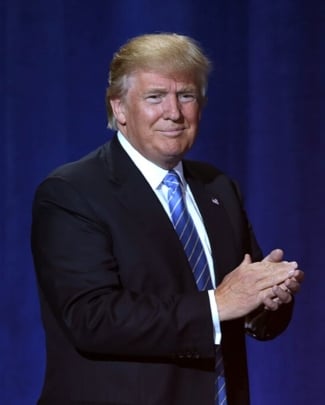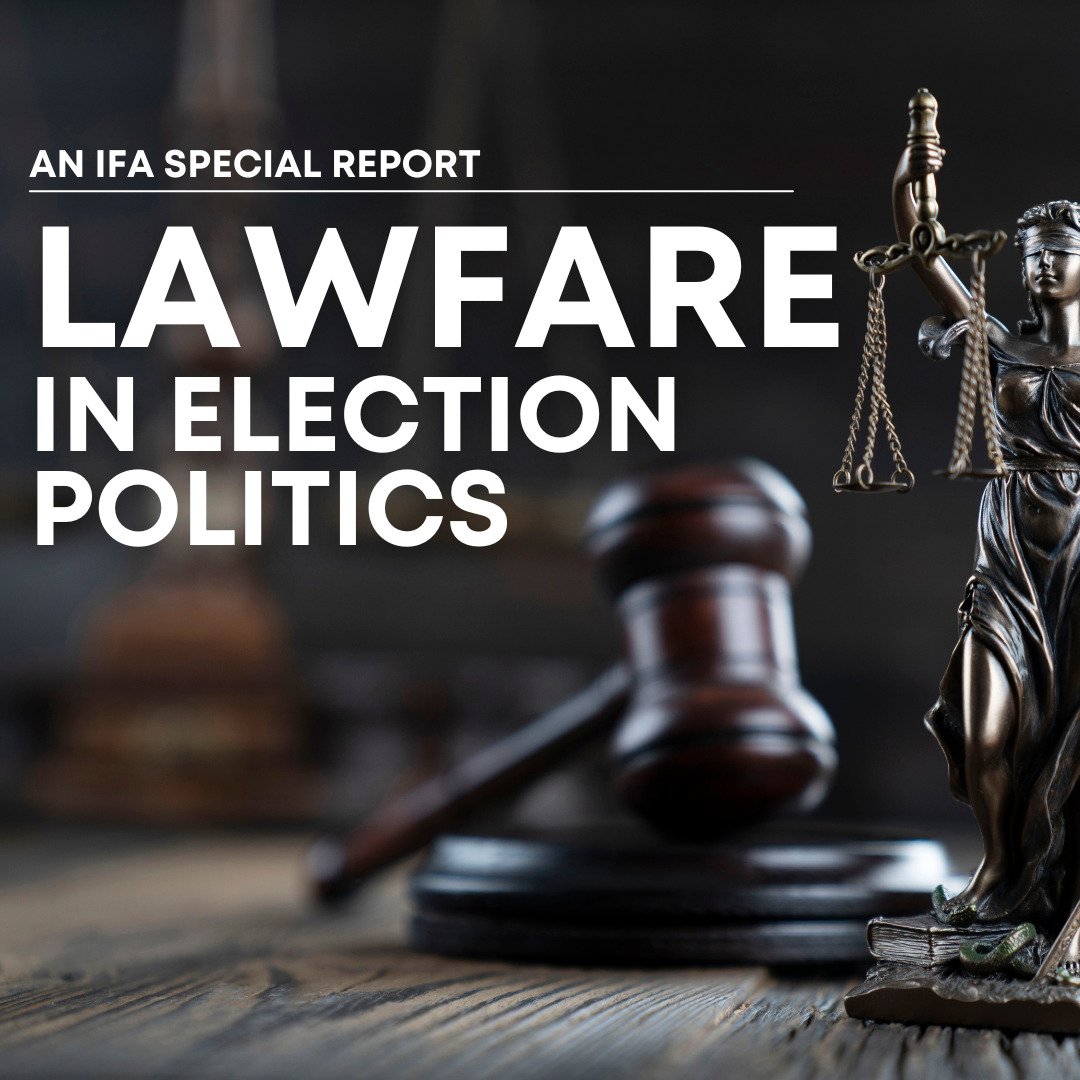EVERYTHING YOU WANTED TO KNOW ABOUT ROGER STONE AND MORE…
IS ANYONE SURPRISED HGTV FEATURES FIRST “THROUPLE”?
BLOOMBERG FUNDING NETWORK OF CLIMATE LAWYERS IN STATE AG OFFICES
THE DURHAM INVESTIGATION–PARTICIPATE BY STRATEGICALLY PRAYING
IFA INTERCESSORS KNOCKED IT OUT OF THE PARK!
EVERYTHING YOU WANTED TO KNOW ABOUT ROGER STONE AND MORE…
What has Roger Stone been convicted of? Are President Donald Trump’s tweets about his sentence inappropriate? Have past presidents ever gotten involved in proposed sentences? Was the jury for Stone biased? John Malcolm, a senior legal fellow at The Heritage Foundation, joins the show to explain it all.
Kate Trinko: So today, Roger Stone, who’s exact connection with President Donald Trump is a little confusing, but who has known him for many years and has engaged in conversations with him, is supposed to be sentenced after being convicted on various charges, including witness tampering and lying to prosecutors. Trump has been tweeting about Stone’s possible sentence and jail time, and that has ignited plenty of controversy.
Joining us today to unpack all this is John Malcolm who heads the Meese Center for Legal and Judicial Studies at The Heritage Foundation. John, thanks for joining us.
John Malcolm: Good to be with you, Kate.
Trinko: Let’s start at the beginning here. What exactly was Roger Stone convicted for?
Malcolm: All right. Well, Roger Stone, first of all, is a longtime Republican operative. And he’s a somewhat bizarre guy. He literally goes back to the Nixon days. In fact, he has, I believe, tattooed on his back, an image of Richard Nixon. …
Trinko: Which I would imagine is not a popular tattoo image.
Malcolm: Yeah. No, I wouldn’t think so. But he’s happily married and I assume his wife likes it. And he’s known Donald Trump a long time.
In the run-up to the election, Roger Stone was making public statements about stuff that WikiLeaks had and would be releasing.
At the time, the head of WikiLeaks, Julian Assange, was holed up in the Ecuadorian embassy in London. And it appears to be no question that Roger Stone was trying to reach out to WikiLeaks to get to Julian Assange to find out just what dirt they had and what they were going to be releasing and when they were going to be releasing it.
And he was communicating with some people in the Trump campaign, some have suggested directly with Trump, that he knew what WikiLeaks was all about.
Congress ended up having hearings on all of this, and Roger Stone testified. And for reasons that, frankly, escape me, Roger Stone said that his contact with Julian Assange was through a New York radio show host named Randy Credico. Credico had done a radio interview with Julian Assange.
Apparently, as it turns out, when special counsel Robert Mueller got emails and text messages from Roger Stone, that his attempts to contact Julian Assange, and it’s unclear he ever actually succeeded in contacting Julian Assange, was not through Randy Credico. It was through a guy named Jerome Corsi, who, apparently, has a history of laying out conspiracy theories.
So when Roger Stone went to Randy Credico, when he said, “You need to tell Congress, you need to tell the FBI, you need to tell them that you were my contact with Julian Assange or else you should just take the fifth and not say anything,” Credico refused to do these.
He said, “Look, they’re going to find out that I haven’t had anything to do with Julian Assange other than the fact that I did a radio interview with him once. And I’m not going to lie.”
At which point Roger Stone said, … “You should prepare to die. And by the way, I’m also going to take away your therapy dog, Bianca. And since you can’t get by without Bianca, then you’re going to be in a world of hurt.”
Trinko: Just a side note, not only is this a complicated soap opera, but this could only happen with someone like Roger Stone, who, as you said, is a notorious operative.
Malcolm: Absolutely. Now, Randy Credico testified at trial back last November and Stone was convicted of obstruction of justice and witness tampering and making false statements to Congress and to the FBI.
For his part, Credico has written a letter to the sentencing judge, Judge Amy Berman Jackson. And it said, “I didn’t take any of these threats seriously. I mean, if he’d gone out and said something publicly, somebody else might’ve hurt me. That worried me a little bit. But this was a bellicose tirade.” These are his words. “And it was just Stone being Stone, all bark and no bite.” And he has, in fact, recommended that Judge Jackson not send Roger Stone to prison.
All right. That all leads up to what happened with the sentencing recommendation.
Trinko: Right. So let’s talk about that.
Malcolm: Sure.
Trinko: Last week, President Trump tweeted out a news story from The Daily Caller, which said that the prosecutors had recommended up to nine years in jail for Stone.
Trump wrote, “This is a horrible and very unfair situation. The real crimes were on the other side as nothing happens to them. Cannot allow this miscarriage of justice.”
Was it inappropriate for Trump to share his view here?
Malcolm: Inappropriate? Quite possibly. I mean, I wouldn’t have done it if I were him. Not just because of that. He, one, created an appearance as if he was attempting to interfere in a politically sensitive case.
But if I were Roger Stone, I think this would be one of those instances where I would say, if the president was trying to help me, “Mr. President, don’t help me.”
Because in addition to writing something that might arguably irritate the judge who’s about to sentence Roger Stone, he then sent out another tweet that said, “Isn’t this the same Judge Jackson who put Paul Manafort in solitary?” Which I’m sure would not endear Judge Jackson to Donald Trump. In addition to the fact that Judge Jackson has nothing to do with Paul Manafort going to solitary, that would be something that the Bureau of Prisons would determine.
This all happened right on the heels of the Department Of Justice filing a sentencing recommendation that suggested that the original recommendation, which you said was correct, was seven to nine years, was inappropriate and that the sentence should be something far less than seven to nine years.
The reason how the prosecutors got to the seven to nine years is they had these federal sentencing guidelines, which are all advisory. The judge doesn’t have to pay attention to these sentencing guidelines, but they’re advisory. Part of that guidelines calculation was an eight-level enhancement for the physical threats that Stone had made to Credico.
But in light of the fact that Credico said, “The guy’s full of it. He’s just all bark, no bite. That’s just Stone being Stone,” [Attorney General] Bill Barr looked at this and said, “This is a 67-year-old guy with no criminal record whatsoever. This threat enhancement is the kind of thing that’s usually reserved for mafia hitmen who make really serious threats and occasionally carry out those threats.”
So if you take away that eight-level enhancement, then the guidelines calculation comes to somewhere between three and four years, that is probably a more appropriate sentence.
That prompted the four prosecutors to immediately leave the case—one of them resigned, in fact, from the Department of Justice—and for all kinds of people to just go nuts, saying, “How dare Bill Barr attempt to interfere with the recommendations of career prosecutors?”
The fact, of course, that they are line prosecutors and he is the Senate-confirmed attorney general of the United States doesn’t appear to have really entered into anybody’s calculus.
How dare the boss actually tell an underling what recommendation to make in a particular sentence, a sentence in a particular case?
Not to mention the fact, of course, that Judge Jackson is going to be able to impose whatever sentence she feels appropriate. . .
Trinko: He is a good friend.
Malcolm: Yeah.
Well, and she, after all, sat through the trial. She knows all of the facts in this case. She’s also not going to be terribly favorably disposed to Roger Stone because in the run-up to the trial, she had imposed a gag order and had told Roger Stone [to] stop mouthing off to the press and stop issuing statements, a gag order that he violated repeatedly.
And she considered revoking his bail and having him sit in jail up until the time of his trial, but she decided at the end not to do that.
Trinko: You mentioned that, of course, bosses often tell subordinates what to do. But when it comes to the DOJ and sentencing recommendations, how common is it for, whether by Barr or someone below him but above prosecutors, how common is it to revise a sentencing recommendation?
Malcolm: Well, there they have a point. It’s pretty rare. Usually sentencing recommendations are made by the prosecutors involved in the case. The attorney general doesn’t usually get involved in making sentencing recommendations. If it’s a terrorist case, then perhaps they’ll make a recommendation to go to the max.
But Barr is saying that he felt he was misled by the prosecutors. There was obviously some kind of consultation before this original recommendation was filed. There’s been some notion that perhaps they misled General Barr as to what recommendation they were going to make.
At the end of the day, it is up to Attorney General Barr to determine what he thinks is fair. It’s entirely, whether we should have done it or shouldn’t have done it, it’s a matter of people can debate. But it’s certainly within his prerogative to do it.
And, frankly, a nine-year sentence for a 67-year-old man with no record whatsoever and a nonviolent defense strikes me, as a former prosecutor myself, of being a bit harsh. . .
Trinko: As you mentioned, there does seem right now to be some tension between Barr and Trump. And after, as you said, Barr mentioned the tweets were making his job impossible, Trump told reporters on Tuesday that he was making Barr’s job harder and he called himself the chief law enforcement officer. So what exactly should the relationship between a president and the head of the DOJ be?
Malcolm: Well, that has changed over time. Under the Constitution, it is the president, under Article 2, who has the duty to take care that the laws be faithfully executed. There has been an attorney general for as long as we’ve had a U.S. government, [it] was one of the very, very first Cabinet positions that was created.
But since Watergate, there has been a particular sensitivity about the White House being involved in particularly sensitive DOJ cases. So there have been allegations of attorneys general being improperly influenced by a president.
So Senator Schumer’s now saying this about Bill Barr and President Trump, others said it about Jeff Sessions and Donald Trump. Famously, Eric Holder referred to himself as Obama’s wing man when he was attorney general.
I think that, look, the president, he’s the one with the constitutional authority to do this. I suppose that would give him a very strong argument that he could outright dismiss a case if he wanted to, in terms of taking an action that he could take constitutionally. It does not mean that he wouldn’t pay a political price for doing that and, perhaps, should pay a political price for doing something like that.
But in terms of does he have the authority under the Constitution to do it? Yeah. He’s the person that has the duty to take care of that, that the laws be faithfully executed. . .
(Excerpt from The Daily Signal. Article by Katrina Trinko.)
Partner with Us
Intercessors for America is the trusted resource for millions of people across the United States committed to praying for our nation. If you have benefited from IFA's resources and community, please consider joining us as a monthly support partner. As a 501(c)3 organization, it's through your support that all this possible.






Comments
Can’t explain it but have a burden to pray for Roger Stone and Gen Flynn. God is a merciful Judge.
This is part and parcel to the problems humans have today as always. They want to exult themselves (Roger Stone) they want attention no matter what they have to do to get it. They are trying to be relevant because of insecurities and a lack of wisdom. We should learn to be still and pray through things we do not understand. Just be still!